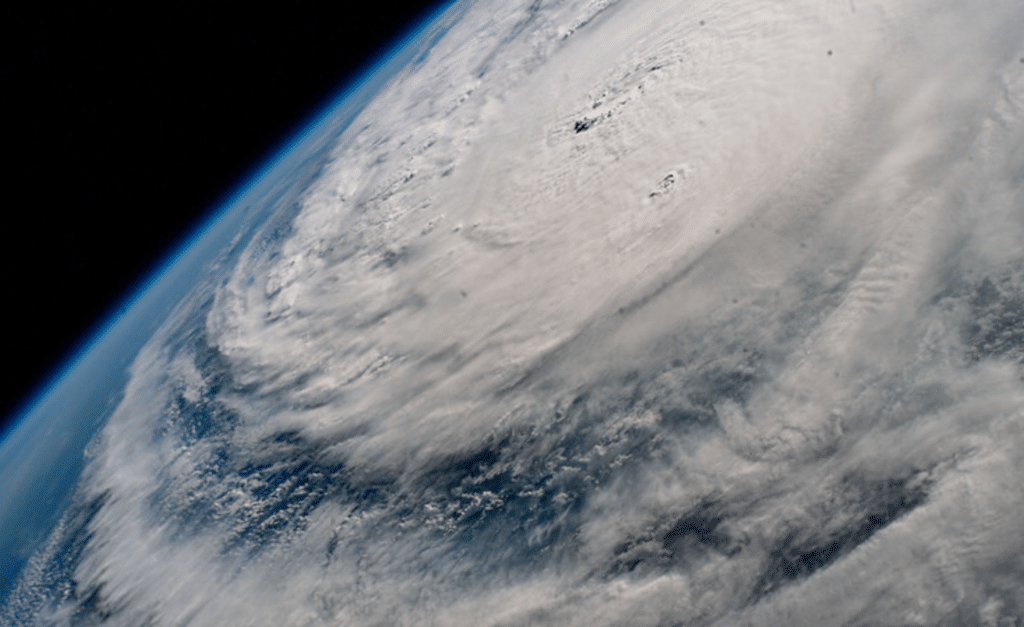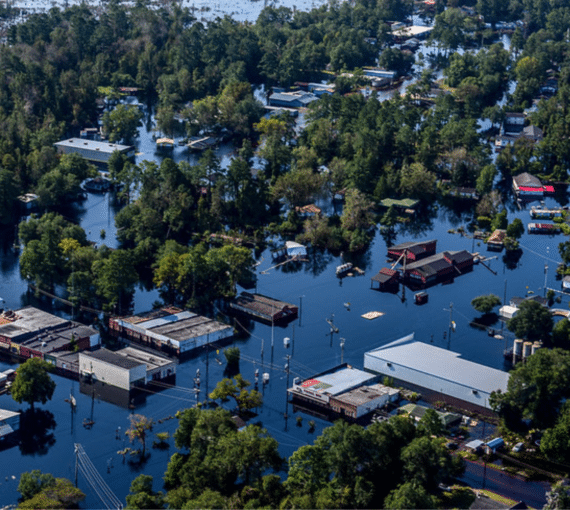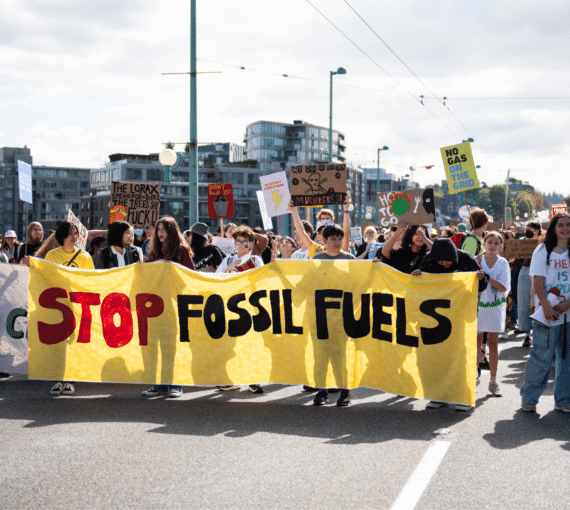
Research shows that in the 1980s, the U.S. averaged about one hurricane every four months that caused more than US$1 billion in damage (adjusted for inflation). Now it’s seeing two every month! (Photo: NASA Johnson via Flickr)
Florida has been slammed by two devastating hurricanes in less than a month. Experts agree that climate change is fuelling the deadly storms. But in May, Florida’s governor signed legislation to remove all references to climate change from state law and repeal a range of grants for renewable energy projects. The law even prohibits local governments from creating alternative energy programs and prevents gas stove bans.
Some people, including many charged with looking after their constituents’ interests, believe that if they ignore global heating, it won’t exist.
According to the National Oceanic and Atmospheric Administration, Hurricane Helene, which blew into Florida on September 26, was among the most powerful to ever hit the United States. Hurricane Milton made landfall two weeks later, bringing tornadoes, torrential rains, death and destruction in its wake.
Rising sea levels also amplify dangerous storm surges.
The overall number of hurricanes hasn’t increased, “But the storms that do form are more likely to become more intense, with higher wind speeds, heavier rainfall, and more severe storm surge,” NPR reports. Research shows that in the 1980s, the U.S. averaged about one hurricane every four months that caused more than US$1 billion in damage (adjusted for inflation). Now it’s seeing two every month!
Since 2017, the U.S. has experienced as many category 4 or 5 Atlantic hurricanes as in the previous 57 years.
Climate change is driving ocean temperatures to record highs. The El Niño climate cycle added to this year’s hotter seas. Worldwide, ocean temperatures have been hitting record highs every month since April 2023. Along with hotter air, this exacerbates the intensity of storms and causes them to pick up more water, leading to heavier rainfall and severe flooding. Rising sea levels also amplify dangerous storm surges.
NASA points out that, according to the law of thermodynamics, for every degree Celsius Earth’s temperature rises, water vapour in the atmosphere increases by about seven per cent. That’s a lot, as seen in the “astronomical amount of precipitation” from Hurricane Helene.
These two hurricanes alone have caused untold suffering, death and displacement and caused billions of dollars in damage.
Overheating oceans aren’t just fuelling hurricanes. Warming waters threaten coral reefs off the Florida coast and put fish and other marine species at risk globally.
None of this is surprising. Scientists and climate experts have been warning of these consequences for decades. But climate impacts — caused by wastefully burning excessive amounts of coal, oil and gas and destroying carbon sinks such as forests, wetlands and peat bogs — are exceeding their worst predictions.
The ever-increasing devastation is horrifying. These two hurricanes alone have caused untold suffering, death and displacement and caused billions of dollars in damage. We’ve known with certainty about climate change and its potential for decades, if not centuries. Even the fossil fuel companies — including Exxon, Chevron and Shell — knew from their own research as early as the 1950s that using their products as intended would cause climate chaos.
But those companies, along with their lobby groups and supporters in media and politics, have put enormous resources into downplaying and covering up the evidence. They’re still at it. Profit is more important to them than human survival.
As one outlet put it the day before Hurricane Milton brutalized Florida, “In 1991, the Bush administration rejected proposed emissions caps that would ‘hurt the nation’s economy in the short term.’ The long term is expected to make landfall just around midnight tomorrow.”
Political leaders need to show some courage and imagination and address this emergency with the seriousness it warrants.
Short-term gain for long-term pain is the prevailing attitude.
People are already reeling under the accelerating impacts of a heating planet, while scientists issue increasingly alarming warnings that “the future of humanity hangs in the balance” as 25 of Earth’s 35 “vital signs” are worse than ever recorded and we’ve exceeded six of nine planetary boundaries that enable human life to exist and flourish and are nearing a seventh.
We’ve pushed our life-support systems beyond the brink and, rather than doing everything to keep things from getting worse, we elect politicians who roll back effective climate policies and ignore the crisis.
Political leaders need to show some courage and imagination and address this emergency with the seriousness it warrants. But they won’t as long as we the people fail to hold them to account.
We’re all in this together. It’s past time to act. Our lives and the lives of our children and grandchildren and those yet to be born depend on it.



